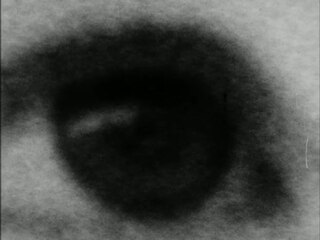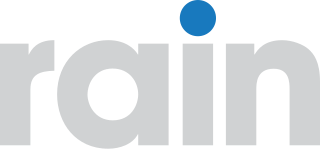Related Research Articles

Telecommunications infrastructure in South Africa provides modern and efficient service to urban areas, including cellular and internet services. The Independent Communications Authority of South Africa (ICASA) is the watchdog of the telecommunications in the country.

Australian Capital Television v Commonwealth, is a decision of the High Court of Australia.

In politics, campaign advertising is propaganda through the media to influence a political debate and, ultimately, voting. Political consultants and political campaign staff design these ads. Many countries restrict the use of broadcast media to broadcast political messages. In the European Union, many countries do not permit paid-for TV or radio advertising for fear that wealthy groups will gain control of airtime, making fair play impossible and distorting the political debate.
Vodacom Group Limited is a South African mobile communications company, providing voice, messaging, data and converged services to over 130 million customers across Africa. From its roots in South Africa, Vodacom has grown its operations to include networks in Tanzania, the Democratic Republic of the Congo, Mozambique, and Lesotho, and provides business services to customers in over 32 African countries, including Nigeria, Zambia, Angola, Kenya, Ghana, Côte d'Ivoire, and Cameroon.

MultiChoice is a South African company that operates DStv, a major satellite television service in Sub-Saharan Africa, and GOtv, a minor service operating in over nine countries of this area and Showmax service. MultiChoice was formed out of the subscriber-management branch of the M-Net terrestrial pay television company, and broadcasts the full range of M-Net channels on the DStv service. MultiChoice is owned by the media conglomerate of the same name. One of the subsidiaries of MultiChoice is DStv Stream, formally DStv Now then DStv App, a service that delivers television transmission to mobile devices such as laptops, smart phones and notebooks.

SAfm is a national, English-language public radio station in South Africa. It has been operated by the South African Broadcasting Corporation (SABC) since its founding in 1936.

The Independent Communications Authority of South Africa (ICASA) is an independent regulatory body of the South African government, established in 2000 by the ICASA Act to regulate both the telecommunications and broadcasting sectors in the public interest.

The Committee of Advertising Practice (CAP) is a British organisation responsible for the UK Code of Non-Broadcast Advertising, Sales Promotion and Direct Marketing, which is the main code of practice for self-regulation of the non-broadcast advertising industry in the UK.
The South African Radio League (SARL), formerly known as the South African Radio Relay League (SARRL), is a non-profit organisation representing the interests of amateur radio enthusiasts in South Africa. The SARL advocates on behalf of its membership and all licensed amateur radio operators in South Africa as the representative of amateur radio to the South African government. This has included the promotion of deregulation and simplification of the amateur radio service, and expansion of the number of amateur radio operators in Southern Africa. The SARL publicises and promotes the role of amateur radio in society, and promotes the use of amateur radio in schools as an entry point into the fields of science and technology. The SARL publishes a magazine called Radio ZS twelve times a year. SARL is the national Member Society representing South Africa in the International Amateur Radio Union and is a Member Society in IARU Region 1.

The Advertising Standards Authority (ASA) is the self-regulatory organisation of the advertising industry in the United Kingdom. The ASA is a non-statutory organisation and so cannot interpret or enforce legislation. However, its code of advertising practice broadly reflects legislation in many instances. The ASA is not funded by the British government, but by a levy on the advertising industry.

Cape Town TV is a community television channel that broadcasts in Cape Town, South Africa. It launched in September 2008 with a one-year, "temporary" license and thereafter won another such license in September 2009. It is a non-profit organisation that is licensed as a community broadcaster in terms of South Africa's Electronic Communications Act.

Soweto Community Television (Soweto TV) is a South African community television channel broadcasting in the biggest township in South Africa, Soweto. The channel is free-to-air in Gauteng Province and it also broadcasts to South African subscribers on the DStv pay TV service on channel 251 and Starsat on channel 488.

StarSat is a South African direct broadcast satellite television service that began broadcasting on 1 May 2010. StarSat is operated by On Digital Media, who were granted a pay-TV license by ICASA in September 2007. On Digital Media is currently 20% owned by Luxembourgish satellite operator SES and 20% owned by Chinese company StarTimes. StarSat's service is aimed at the LSM 6-9 demographic, targeting middle class viewers.

The Advertising Standards Authority of South Africa was an independent entity organised and financed by members of the marketing communications industry of South Africa. Its purpose was to manage South Africa's voluntary, self-regulating system of advertising.
Kagiso Media is the largest black-owned media corporation in South Africa. It was formed in 1997 by Kagiso Trust Investments.

The News Broadcasters and Digital Association (NBDA) formerly known as the News Broadcasters Association (NBA) is a private association of different current affairs and news television broadcasters in India. It was established by Indian news broadcasters on 3 July 2007. The Association was set up to deal with ethical, operational, regulatory, technical and legal issues affecting news and current affairs channels.

One FM 94.0 in Cape Town, South Africa is a community radio station that broadcasts to the community of the Western Atlantic Seaboard, in Cape Town, South Africa. One FM 94.0 received its Community Broadcast License from ICASA in 2014, but only went live to air on 12 August 2015 with automated programming. The license was granted as a geographically founded community radio station. The official live broadcast date with presenters was 21 March 2016 at 12H00, which coincides with Human Rights in South Africa.
In South Africa the Department of Public Enterprises is the shareholder representative of the South African Government with oversight responsibility for state-owned enterprises in key sectors. Some companies are not directly controlled by the Department of Public Enterprises, but by various other departments. Further, not all state owned entities are registered as companies.

Rain or Rain (Pty) Ltd is a South African mobile communications company, providing voice, messaging, data and converged services.
Freedom of expression in South Africa is guaranteed in section 16 of the Constitution of South Africa. This right to freedom of expression, which is regarded as being of fundamental importance to South African constitutional democracy, was first recognised in the Interim Constitution of 1993. The right is not unqualified — certain forms of expression fall outside of the ambit of section 16(1), and the right is capable of limitation in accordance with the general principles of South African constitutional jurisprudence. Application of the right to freedom of expression by the courts has had a considerable impact on, amongst other fields, South African criminal law, defamation law and trademark law.
References
- ↑ "Advertising Regulatory Board launches". Media Update. 8 November 2018. Retrieved 9 October 2023.
- ↑ "ICASA and the Advertising Regulatory Board (ARB) MOU - 2021 – Independent Communications Authority of South Africa". www.icasa.org.za. Retrieved 9 October 2023.
- ↑ "Stakeholders & Funders". www.arb.org.za. Retrieved 9 October 2023.
- ↑ Müller-Mabuza, Robyn (7 January 2019). "Is the new Advertising Regulatory Board a redo of the ASA, or better?". Insights into The Law in South Africa | Welcome to Go Legal. Retrieved 9 October 2023.
- ↑ Schimmel, Gail (1 June 2016). "A blow to the ASA is a blow to consumers : advertising". Without Prejudice. 16 (5). JetBlue Publishers: 20–21. hdl:10520/EJC192388. ISSN 1681-178X.
- ↑ Papadopoulos, Andrew (28 April 2022). "Advertising watchdog gets its teeth back in SCA judgment". Insights into The Law in South Africa | Welcome to Go Legal. Retrieved 24 October 2023.
- ↑ "CONSTITUTIONAL COURT OF SOUTH AFRICA: Bliss Brands (Pty) Ltd v Advertising Regulatory Board NPC and Other (Summary)" (PDF).
- ↑ "ELECTRONIC COMMUNICATIONS ACT" (PDF). pp. 67–68.